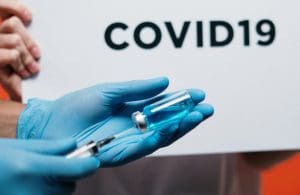
Photo from Pexels
Facing the second-biggest wave of COVID-19 infections and waning popularity, President Biden has promised to launch an initiative to begin providing vaccine boosters starting September 20.
But the plan hinges upon FDA and CDC support, and some officials at the agencies remain unconvinced that boosters are immediately necessary.
Two departing senior FDA vaccine officials recently co-wrote an article published in The Lancet arguing that insufficient evidence exists to justify the case for boosters. “Even if boosting were eventually shown to decrease the medium-term risk of serious disease, current vaccine supplies could save more lives if used in previously unvaccinated populations than if used as boosters in vaccinated populations,” the paper argues. In addition, while the public could ultimately benefit from boosting, administering boosters before they are required could lead to an uptick in adverse events, according to The Lancet article.
Against that backdrop, the FDA is also rumored to be frustrated with the pace of CDC’s booster data analysis. Meanwhile, officials at CDC are also “exasperated by the situation and what they see as unrealistic expectations from the White House as it tries to shore up public opinion,” according to a report from Politico.
Members of FDA’s Vaccines and Related Biological Products Advisory Committee will meet on September 17 to discuss the prospect of recommending boosters of the Pfizer-BioNTech vaccine to the broader public.
The agency recently released data from Pfizer detailing the safety and efficacy of a booster of the BNT162b2 vaccine when used as a booster.
The document concludes that vaccine effectiveness appears to wane over time in individuals who received two doses while the risk of breakthrough infection gradually increases.
A Phase 3 substudy involving 306 participants found that a third dose of vaccine mounted a robust immune response and was as well tolerated as the second dose. Furthermore, data from Israel’s booster campaign further supports these findings, Pfizer argued.
FDA approved the Pfizer-BioNTech vaccine, now known as Comirnaty, on August 23. Two days later, Pfizer filed for authorization to use the vaccine as a booster in individuals 16 and older.